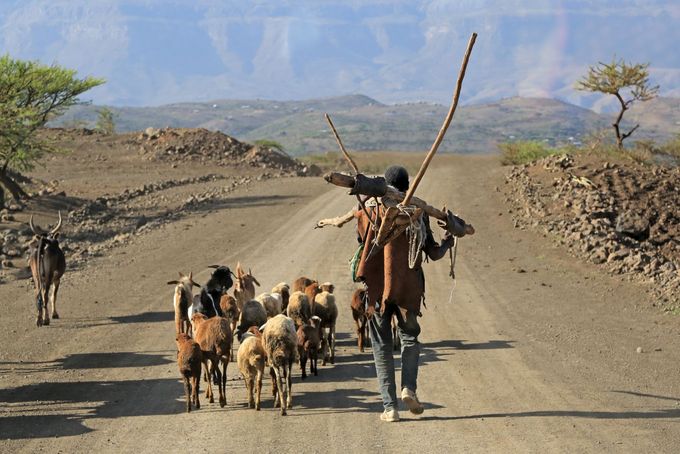Experts Call for Enhanced Cooperation Between Human, Animal and Environmental Health
20.01.2023
The COVID-19 pandemic has exposed weaknesses in the world’s global health security networks. A global ‘One Health’ approach is crucial for preventing, monitoring and responding to future public health emergencies. This is argued by the authors of a four paper Series published yesterday in The Lancet. Swiss TPH, with its longstanding expertise in One Health, contributed to this Series.

In The Lancet Series on One Health and Global Health Security, the authors call for increased investment in the One Health approach, especially for interventions to prevent health emergencies. Billions of US dollars per year are required to make a real impact on prevention and preparedness globally – a small fraction of the cost of responding and recovering from a global health emergency like the COVID-19 pandemic.
Jakob Zinsstag, Head of the Human and Animal Health unit at Swiss TPH and lead-author of the first paper in the Series said: “There is clear evidence of the benefits in terms of human and animal lives saved and financial savings from working closely together on health at the human-animal-environment interface.”
Shifting towards equitable global networks
A global analysis of One Health networks reveals gaps and disparities in geographic distribution and partnership structures with more networks active and headquartered in Europe and North America than other regions. The Series argues that the One Health movement must break free from power structures centred in high-income countries in order to establish more equitable global networks that address the breadth of issues and serve communities most affected by existing and emerging threats to health. Additionally, priorities for funding must move beyond subsidies and grants for development and research organisations based in high-income countries, to focus more closely on measurable technology transfer and self-sufficiency in low- and middle-income countries.
Improving the involvement of environmental organisations
The Series also found that environmental organisations are often missing from the design and agenda setting of One Health networks, which limits the extent to which a full One Health approach is being practiced. The authors call for One Health approaches that involve more environmental health and community organisations to integrate environmental, wildlife and agricultural issues to better address challenges related to the spread of diseases and the risk of future pandemics.
“The COVID-19 pandemic has shown us how important global cooperation is. If we are willing to work even better together between sectors – human medicine, veterinary medicine, environment and agriculture – we will be better prepared and able to respond to global health crises in the future”, said Zinsstag.
Contact

Jakob Zinsstag
Professor, PhD, DVM
Group Leader, Head of Unit
+41612848139
jakob.zinsstag@swisstph.ch
Stay connected
Subscribe to our newsletter and get all the latest research news, project updates, course and event listings from Swiss TPH.